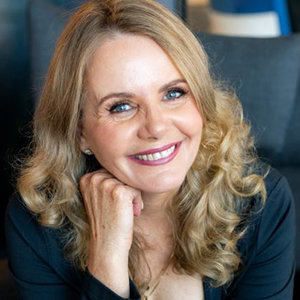Opportunities for financial advisers to work with lawyers in collaborative practice can offer a big boost to business, according to financial adviser Sophie Atkinson CFP®, who will be talking about her experiences at Roadshow 2025.
 Sophie Atkinson has been a financial adviser since the late 1990s but recently she has moved into collaborative financial advice to help clients going through divorce, or difficult estate planning issues.
Sophie Atkinson has been a financial adviser since the late 1990s but recently she has moved into collaborative financial advice to help clients going through divorce, or difficult estate planning issues.
Sophie’s own divorce is what she called “high conflict” and took seven years and cost her $250,000 to resolve because of finance and custody issues.
So, Sophie has experience in the field and sees collaborative practice as a better way – although she adds the disclaimer that it isn’t for everyone. Both parties have to be committed to the process and if it goes wrong the whole process needs to start again.
While collaborative law is not new in Australia – it’s been practised for more than 20 years. – it is not as common here as in the US. It has typically been used in divorce proceedings but is also practiced in estate planning.
For divorce cases in particular, it can mean proceeding with the property division without barristers and extended court waiting times.
Speaking at the FAAA Roadshow 2025, Sophie will be shining a light on collaborative practice.
Collaborative practice is a process of solving disputes such as divorce, business disputes and estate planning outside the courts. Collaborative practice brings both parties together to work with their lawyers and other professionals in a transparent way to achieve what may often be a different and creative outcome.
Qualifications can help
While qualifications are important in assisting with collaborative practice, there is still an opportunity to approach solicitors who are practising in this area and offer your services. However, Sophie believes that qualifications would be preferred.
“This is the greatest business opportunity I’ve seen in the 25 years I’ve been in business,” she said.
“At our recent launch for the wills and estate practice group there were over 120 lawyers who want to work with financial planners in this collaborative space”.
There are a number of reasons for that – one is that they are becoming more aware of their compliance obligations and not wanting to step over the line and the other is that a lot of lawyers are suffering from burnout and they don’t want to be in the litigious environment anymore, Sophie said.
Wills and estates
What advisers can offer in the collaborative space for both wills and estates (and divorce) is the information gathering, which saves time and money because one person is gathering the information.
Advisers can also help with financial projections. In the estate space there’s pre-death and there’s post-death. With post-death, advisers might be able to work out what each beneficiary gets based on their needs – which may be growth assets, or dividends, and there is the ability of being able to negotiate.
If people meet before death – there’s the ability for the family to come up with an agreement and when the person dies, it’s all organised and there is no chance of going to litigation. However, like divorce, they must be appropriate clients. “They’ve all got to agree and so that’s all still collaborative practice,” Sophie said.
For collaborative practice to become more common in Australia, Sophie says it’s important to let people know that collaborative practice exists. And that is why she wants to present the opportunities to advisers at the Roadshow – opportunities both for their business and for their clients.
You can hear from Sophie at the upcoming FAAA Roadshow. Find out more and register at faaa.au/roadshow.
